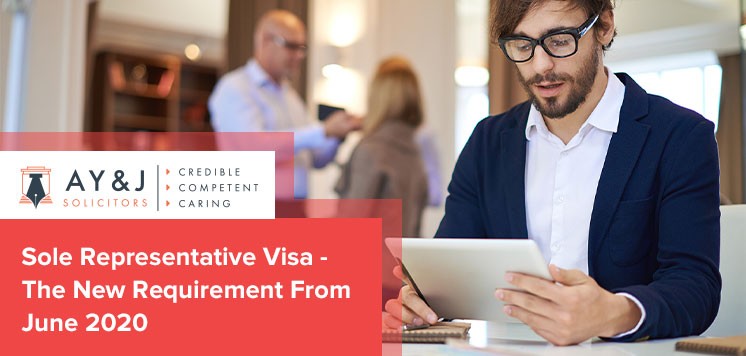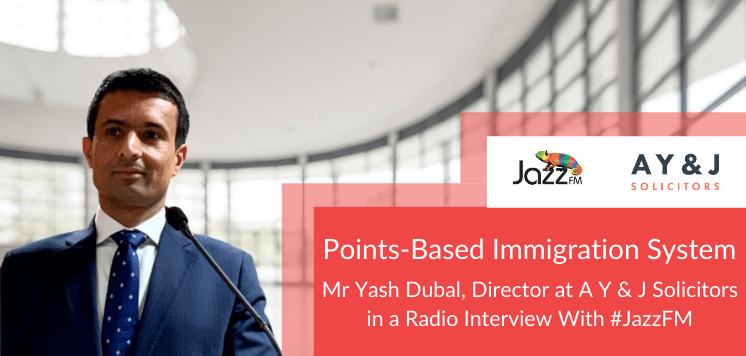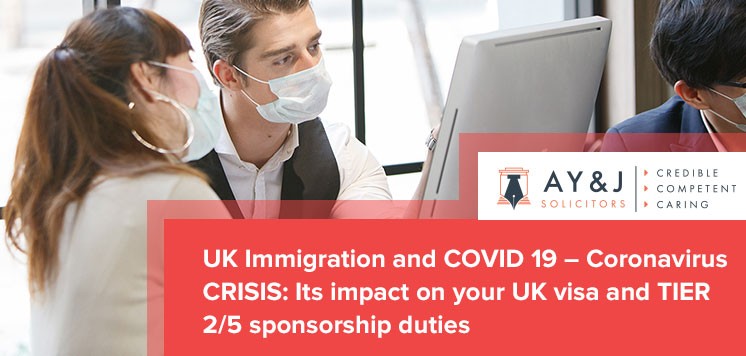Disclaimer: The information in this blog is accurate as of its publication date. Any updates after that date are not reflected here.
The Home Office has confirmed that effective from 9AM on 11 April 2022, the Sole Representative visa route will be closed to new applicants.
Self Sponsorship is a good alternative to consider if you’re considering business opportunities within the UK. A UK Sponsor is not required and this can lead to permanent residency and British citizenship for yourself and your family.
In mid-May, the British government released the Statement of Changes in Immigration Rules presented to Parliament in May 2020. Before the release of the Statement, the Home Secretary, Priti Patel, made clear that the criteria of the Representative of an Overseas Business Visa (ROBV) would be strengthened.
The Sole Representative Visa New Requirement changes take effect From 4 June 2020.
This route pre-dates the Points Based System (introduced in 2008). Compared to many other visas, the ROBV was fairly simple. Now, applicants will have a significantly higher threshold to gain entry via this route.
Table of Contents
What are the changes affecting the Representative of an Overseas Business Visa?
The changes to the ROVB are as follows:
- There must be a genuine intention for the representative to establish a branch office or subsidiary in the UK;
- The overseas businesses must be active and trading and intend to maintain their principal place of business outside the UK;
- The representative must have the skills, experience, knowledge and authority to represent the overseas business in the UK;
- Representatives must be senior employees and cannot engage in their own business or represent any other business in the UK;
- Ownership of overseas businesses is not limited shares; it can include being a partner or any other form of ownership;
- Those who have a majority stake in an overseas business cannot enter the UK as the dependent spouse, civil partner, unmarried or same-sex partner of a representative of their own company.
- When it comes to extending the visa, the branch or subsidiary must have been established by the representative in the UK, and not overseas.
Two major points stand out:
- The Home Office is focused on ensuring that the ownership and control of the organisation remain abroad. The Home Office Guidance on the ROBV states: “The company must intend to keep its main centre of business abroad. This does not mean that you must refuse a company if there is evidence that it intends its UK branch or subsidiary to flourish so in the long term it might overshadow its parent company”.
- By ruling that a spouse or unmarried partner cannot “have a majority stake in, or otherwise own or control, that overseas business, whether that ownership or control is by means of a shareholding, partnership agreement, sole proprietorship or any other arrangement” ensures that the applicant cannot transfer ownership to a dependent spouse or partner, thereby effectively transferring ownership of the business to the UK.
It will now be more challenging to meet the ROBV application criteria. For example, before the Statement of Change May 2020, there was no reference to the applicant needing the “skills, experience and knowledge” to become a representative. Instead, the guidance simply stated:
“You can expect the sole representative to have:
- been employed by the parent company in a senior job role within the company
- a track record of setting up branches for other companies, if they have been employed specifically to undertake this role
- authority to take operational decisions once in the UK, as indicated by their role in the company hierarchy”.
Now, the employer will have to provide a letter certifying that the applicant for the ROBV has the skills, experience, and knowledge required. However, there is no information as to how these criteria will be assessed.
In summary
The changes made to the ROBV are extensive and as yet, untested. Therefore, it is vital to invest in experienced legal advice when making an application. Immigration decision-makers are public office workers, not businesspeople, and this can lead to refusals being made due to the decision-maker not understanding the culture and unique requirements of certain markets and industries.
An immigration lawyer will take the time to understand your business and put together a robust application, including the supporting documents required, to make it difficult for a decision-maker to find a reason to refuse the ROBV. Furthermore, if the application is refused, they can swiftly establish grounds for an Administrative or Judicial Review.
A Y & J Solicitors are specialists in immigration law based in central London. If you would like more information on UK Visas, Settlement, or Sponsor Licences, please contact us at contact@ayjsolicitors.com or call +44 20 7404 7933.









